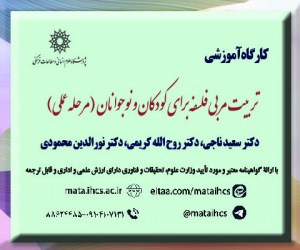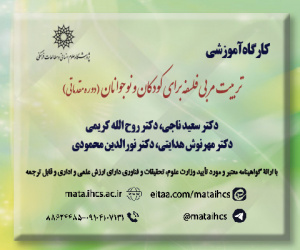از «کشف اسرار» تا «ولایت فقیه»: ثبات در اندیشه سیاسی امام خمینی (ره) (مقاله علمی وزارت علوم)
درجه علمی: نشریه علمی (وزارت علوم)
آرشیو
چکیده
نظریه ولایت فقیه یکی از مهم ترین ارکان اندیشه سیاسی امام خمینی (ره) برای رهبری جامعه اسلامی در عصر غیبت امام معصوم (ع) است. به علاوه ایشان، تنها فقیهی است که توانست بر مبنای این نظریه، حکومت اسلامی تشکیل بدهد و به آن به عنوان اولین تجربه حاکمیت فقیه بر جامعه نمود عینی ببخشد. سوال اصلی مقاله حاضر این است که آیا اندیشه سیاسی امام خمینی از زمان انتشار کتاب کشف اسرار تا تدوین کتاب ولایت فقیه دچار تحول شده یا ثابت بوده است. برای پاسخ به این سؤال با بهره گیری از روش مقایسه ای، محتوای دو کتاب امام خمینی با عنوان کشف اسرار و ولایت فقیه تحلیل و بررسی شده است. فرضیه پژوهش براین اساس است که امام خمینی نظریه ولایت فقیه را در هر دو کتاب مذکور مطرح کرده است و مجتهد عادل را در عصر غیبت، جانشین امام معصوم با تمام اختیارات او می داند. بنابراین امام خمینی در زمان های مختلف براساس مقتضیات زمان و مکان – که از نظر ایشان دو عنصر کلیدی در اجتهاد است – ابعاد مختلف اندیشه سیاسی خود را مطرح کرده است، اما چارچوب اندیشه سیاسی امام خمینی از ابتدای نظریه پردازی تا پایان عمرشان ثابت بوده است. چارچوب نظری حاکم بر اندیشه امام خمینی در هر دو کتاب، مبتنی بر دیدگاه تشیع در باب شیوه رفتار مؤمنان با حاکم جائر است که اصل اساسی در این مکتب، نفی همکاری با حاکم جائر است، مگر اینکه شرایط خاصی این همکاری را مجاز کند. این مبنا قادر است اندیشه و عمل سیاسی امام خمینی را در ادوار مختلف سیاسی ایشان از جمله شدت و ضعف رویکرد ایشان را نسبت به حکومت پهلوی تبیین کند.The Transition from “Kashf-e Asrar” to “Vayalat-e Faqih”: The Political Stability of Imam Khomeini
The valayat-e faqih theory holds significant political weight as a cornerstone of Imam Khomeini's ideology concerning the governance of Islamic society during Imam Masoom's (AS) absence. Furthermore, he stands as the sole jurist who successfully established an Islamic government grounded in this theory, furnishing it with an impartial appearance, thus providing the initial instance of jurist dominion over society. The primary inquiry of this article pertains to whether Imam Khomeini's political ideology underwent any transformation over the extensive period spanning from the 1950s to the Islamic Revolution and his tenure as the leader of the Islamic Republic. To answer this question, the content of Imam Khomeini's two books “Keshf Asrar” and “Valayat–e Faqih” has been scrutinized and analyzed using the descriptive-analytical method. The research hypothesis posits that in both of the aforementioned books, Imam Khomeini formulated the theory of velayat-e faqih. Furthermore, in both texts, he affirms imprtial Mujtahid as the complete successor of Imam Masoom during the era of occultation. Hence, despite the fact that Imam Khomeini articulated distinct facets of his political philosophy at various junctures in accordance with the circumstances of the time and location—two fundamental components of ijtihad, in his estimation—the structure of his political philosophy has remained unchanged since the 1950s until his demise. The conceptual underpinning that drives Imam Khomeini's ideas in both volumes is the Shi'ite perspective on the proper conduct of adherents in the presence of an oppressive monarch. The foundational tenet of this school is the rejection of collaboration with an oppressive sovereign, barring specific circumstances that authorize such cooperation. This foundation can elucidate the political ideology and conduct of Imam Khomeini during his various political eras, including the intensity and feebleness of his opposition to the Pahlavi regime.



